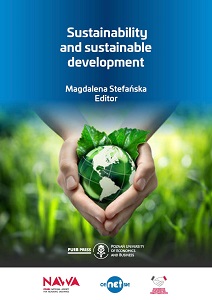Circular economy in the waste management sector
Circular economy in the waste management sector
Author(s): Gabriel Grabowski
Subject(s): Economy, Business Economy / Management, Energy and Environmental Studies, Marketing / Advertising, Business Ethics
Published by: Wydawnictwo Uniwersytetu Ekonomicznego w Poznaniu
Keywords: circular economy (CE);Corporate Social Responsibility (CSR);recycling;selective waste collection;waste segregation;waste management;
Summary/Abstract: The growing population and rising standards of living lead to an increase of the consumption of many goods. Reducing municipal waste which is created in that process can result in a wide range of environmental, economic, and social benefits, such as reducing pollution in water and soil, greenhouse gas emissions and loss of valuable materials. The concept to solve this problem of municipal waste due to increased consumption can be found, among others, in circular economy (CE). Circular economy can be defined as “an economic system that is based on business models which replace the ‘end-of-life’ concept with reducing, alternatively reusing, recycling and recovering materials in production/distribution and consumption processes to accomplish sustainable development” (Kirchherr, Reike, & Hekkert, 2017). A current trend in developed countries is closing the loop, moving from the concept of “end-of-pipe” waste management towards more holistic resource management (Wilson, 2007). Implementing the circular economy approach through waste management systems can pose multiple challenges while providing incentives to improve waste management infrastructure. However, this requires investments and may be perceived by many people as cost, not investment in future generations and their standard of living.The aim of this chapter is to initiate discussion on the positive aspects and barriers of circular economy development in the Polish waste management sector. In the case study described in the text, the roles of citizens, public institutions as well as enterprises are shown in selective waste collection processes as an important element of circular economy. In Poland, awareness of waste segregation and the importance of using recycled materials is not well-developed compared to many other EU countries, although this situation is beginning to gradually improve.
Book: Sustainability and sustainable development
- Page Range: 243-250
- Page Count: 8
- Publication Year: 2021
- Language: English
- Content File-PDF

